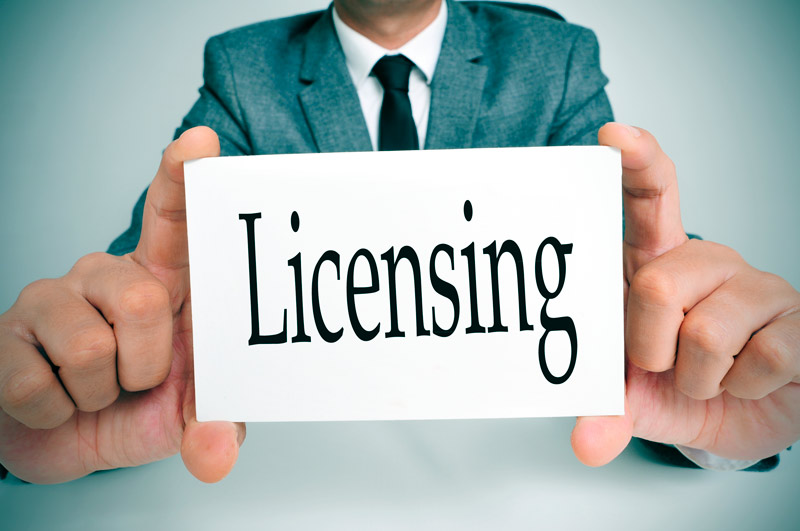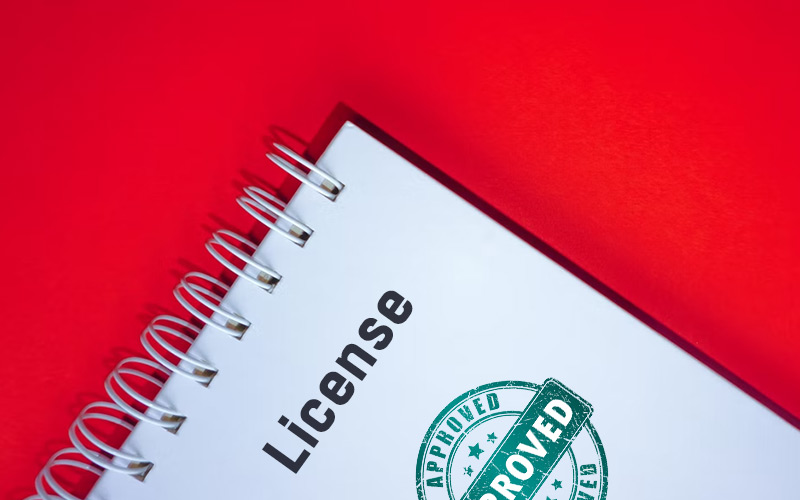How to Acquire a Licence in Ontario and Launch an Online Casino
Canada’s gambling laws have been stirring up serious interest across the global iGaming scene. The country has a strong economy, a tech-savvy population, and a legal landscape that is finally opening up to business. The rules can get a little confusing (thanks to each province delivering its own regulations), but Ontario is leading the jurisdiction with a clear path for private operators.

How Canadian Gambling Evolved and Why It Matters Now
Canadians have always had a thing for casinos and betting. With each passing year, that relationship to entertainment keeps getting more official, regulated, and profitable. While some countries wander around the betting culture, Canadians have been placing wagers and spinning slots with enthusiasm for decades.
At the same time, the shift from underground poker to billion-dollar iGaming platforms did not happen overnight. The path has been consistently heading toward liberalisation. And now, Ontario’s bold move has changed the sector entirely.
How the country got from outlawed betting to a booming, regulated market:
- The early legal landscape was a hard “no.” Until the 1970s, almost all forms of gambling were banned unless you were raising money for charity. That changed when Canada handed regulatory power over to individual provinces and gave them control of gambling laws in their own territories.
- Land-based gambling came first. Once provinces had the green light, they set up casinos, racetracks, and lottery operations to cash in on public interest. By the 1990s, video terminals were introduced to bring the slot machine experience outside of casinos.
- Online gambling was legalised in 2009. Only provincial governments were allowed to run sites. British Columbia led the way with PlayNow in 2010, followed by Loto-Québec and Manitoba. Players who wanted more competitive odds or better UX drifted toward offshore platforms, which were technically unregulated but openly used.
- The crackdown on foreign sites never really landed. Quebec tried to block access to offshore casinos in 2016 with Bill 74. However, this did not work. The courts struck it down and ruled that provinces could not control internet traffic or enforce criminal law that way.
- The big change came in the early 2020s. In 2021, Canada finally allowed single-event betting. In April 2022, Ontario launched a fully regulated online gambling market to let private companies legally offer iGaming to locals as long as they follow the rules.
Since Ontario opened its doors, the numbers have been wild. $2.4 billion in gaming revenue, $63 billion in bets placed, and a 70% jump in market size were registered in just one year. That revenue goes straight into things that matter, like culture, public services, and social programs. If you are thinking about launching a gaming site in Canada, now is the time to make a move, and Ontario is where it should all start.
What You Should Know About Local Players

One of the biggest advantages of entering the Canadian iGaming space is that punters are already well-prepped. For years, they have been exploring offshore platforms without much pushback from the government. Most Canadians who gamble online have already figured out what they like. In the majority of cases, they prefer smooth UX, strong security, plenty of payment options, and lots of content variety.
Digital habits are inherent here. The shift toward online services was accelerated during the pandemic, and Canadian users adapted quickly. As of 2024, more than 19 million residents are active in online gambling. Over half the population reports casino activity on a monthly basis. That is a vast, engaged user base that is already plugged in and looking for better options.
Localisation is key if you want to make an impact. While English is widely spoken, you should not forget that French is a second official language in the country, especially if you are targeting regions like Quebec. The presence of both languages on your site is a must if you want full market coverage and compliance.
Payment flexibility is similarly developed. Canadians are used to a wide range of banking tools. On top of Visa and Mastercard, they expect to see PayPal, Skrill, iDebit, InstaDebit, Paysafecard, and even crypto options. One in five Canadians holds some form of cryptocurrency. That is why it is worth considering wallets and exchanges that are already registered as legal Money Service Businesses in Canada.
Canadian players are spoiled for choice. They are used to international-level platforms with huge game libraries and regular updates. To stand out, your offering needs to be packed with classic games, new releases, live dealers, and trend-driven content. Anything less, and they will move on to the next site that offers more.
Where Online Gambling is Legal in Canada
The country is a federation, and casino laws are managed by provinces. While the Criminal Code sets the foundation, it leaves a lot of room for local governments to build their own frameworks. The Canadian Gambling Commission oversees general communication and regulation on a national level, but it does not control regional laws. That means each region decides how far it wants to go with legal operations.
How things are shaping up across the country:
- Ontario is easily the most progressive market. Online casinos and sportsbooks from private companies are entirely legal, alongside a strong land-based sector.
- Quebec offers nine ground halls, a government-run platform (Espacejeux), and official sports betting through Mise-O-Jeu.
- British Columbia allows brick-and-mortar gambling under the Gaming Control Act. In the online world, PlayNow is the sole viable operator.
- Alberta has just one legal casino site. Only charitable and religious groups are allowed to offer additional gambling services.
- Manitoba uses PlayNow for its iGaming offering. Betting is available via Sport Select, with a daily wagering cap of $180.
- Newfoundland and Labrador have no land-based or digital casinos. The only legal option is Pro-Line for limited betting.
- Nova Scotia hosts two government-owned gaming spots. Online access is down to Pro-Line, and no third-party operators are allowed.
- New Brunswick has one brick-and-mortar establishment. Sports betting access is provided through Pro-Line.
- Prince Edward Island has its gambling regulated by the local Lotteries Commission. Pro-Line betting is also allowed, but that is about it.
- Saskatchewan does not present any legal iGaming platform. Meanwhile, Sports Select is available for betting.
- Yukon, Nunavut, and the Northwest Territories have no local virtual casinos. Residents typically play via offshore websites.
Canada’s legal gambling map is patchy, but it is evolving. While Ontario leads the charge, other provinces still stick to state-run models or offer very limited access. If you are an operator, Ontario is your best shot at going legal for now.
How Regulation Works in Canada’s Welcoming Market
The most appealing province stands out as the only one to officially open its doors to private operators. However, instead of following the traditional path of licensing seen in many jurisdictions, Ontario decided to take a different route.
Over a two-year period, the Alcohol and Gaming Commission of Ontario developed a system that allows the market to remain competitive and maintain strong regulatory control. The idea was to build a model that welcomes international businesses without oversight or player protection sacrifices.
In this structure, the AGCO acts as the primary regulator, handles company registration, and ensures that all gambling services offered to locals meet provincial standards. iGaming Ontario operates alongside the AGCO. iGO is a subsidiary tasked with managing the day-to-day operations of the regulated market. The organisation signs a unique agreement with every operator who wants to go live in the province. Such a partnership ensures that each one stays compliant and plays by the rules.
To join Ontario’s iGaming scene, operators must register with AGCO and finalise a commercial agreement with iGO. This two-step process gives them the green light to launch gambling websites for local punters. It is not limited to casinos and sportsbooks since B2C operators and B2B suppliers can apply for access. Before getting started, however, applicants need to pass product certification through independent labs, submit several required documents, and pay the associated fees.
Entrepreneurs are introduced with a suggested process, coordinated by AGCO and iGO:
- sign a non-disclosure agreement (NDA) with iGO;
- get all gaming software certified by an approved independent lab;
- finalise and sign a Letter of Agreement with iGO to begin the onboarding process;
- register your company with the AGCO as an official iGaming operator or supplier;
- set up platform control mechanisms and pass all required technical checks;
- submit anti-money laundering documentation and complete banking due diligence;
- participate in AGCO’s training sessions for regulatory submissions and system readiness;
- establish authorised online accounts for reporting and monitoring purposes;
- set up access to iGO’s secure data exchange services for information sharing;
- complete all necessary testing related to system functionality;
- sign the final operating agreement with iGO before launch;
- ensure full compliance with AGCO’s technical and operational standards.
Every step in this process must be completed before going live. Ontario’s model may be more involved than other jurisdictions, but it offers a structured and fully legal way to enter one of the most promising gambling markets in North America.
The launch of the platform comes with a solid initial price tag:
- an annual fee of $72,000 per gambling site for B2C operators;
- an entry payment of $11,000 for B2B side equipment manufacturers;
- the first deduction of $2,150 for suppliers of services or non-manufactured products.
This fair structure supports market entry and sustainable operations. What is more, it provides a clear legal pathway into Canada’s most lucrative province.
How Ontario Stands Out from Other Gambling Destinations

iGaming laws shift constantly around the world. Some countries ban it altogether, others turn a blind eye, and a few take full regulation. In over a decade of watching global markets evolve, it is clear that the most successful systems are those that are entirely legal, well-structured, and business-friendly. These models generate serious tax revenue and keep the black market in check.
Most of the time, gambling laws are controlled by national governments, and rules are applied uniformly across the country. In Canada, each of the 10 provinces and 3 territories makes its own rules, just like you would see in places like the US, South Africa, or India. That means the gambling experience and the legal hurdles can vary wildly from one province to the next.
Ontario took a unique path with a hybrid model that brings together private operators and government oversight. Instead of handing out traditional licences, the province uses commercial agreements. Companies that want to operate in Ontario do not get a permit. They sign a deal with the authorities, agree to follow the rules, and act as private contractors in a tightly regulated market. This keeps the process flexible and competitive to maintain complete regulatory control.
Kahnawake is a special case in Canadian gambling history. The jurisdiction is located on Mohawk territory and is not subject to the country’s law, which makes it a sovereign destination in practice. Back in 1996, the Kahnawake Gaming Commission started offering licences to online casinos, even when the rest of the country still considered such operations illegal. The KGC regulated operators and provided hosting services via local infrastructure without interference from the Canadian government.
While Ontario represents the official future of iGaming in the country, Kahnawake deserves credit as a pioneer that laid much of the groundwork.
The Main Things about the Insights of the Canadian Gambling Ecosystem
The country’s gaming sector is a patchwork of provincial rules, historic milestones, and new opportunities. At the same time, it is also one of the most promising iGaming destinations in North America. Ontario leads the charge, while other provinces gradually test the digital waters. For operators with the right strategy and local expertise, this region offers strong revenue potential and long-term growth.
Here is what to consider upon entering the destination:
- Ontario is currently the only province that welcomes private online gambling operators with a unique agreement-based model instead of classic licensing.
- The Alcohol and Gaming Commission of Ontario (AGCO) and iGaming Ontario (iGO) work together to register and supervise operators.
- A detailed, multi-step onboarding process ensures transparency, compliance, and smooth sphere entry.
- Canadians are highly familiar with online gambling, as there are over 19 million active players and a strong preference for modern, varied platforms.
- English and French localisation, along with flexible payment methods, are essential to attract and retain local users.
- Other provinces are still limited to state-run models or restricted offerings, which have allowed grey-market activities to stay functional.
- The Kahnawake Gaming Commission played a major early role in the local online ecosystem, with licences long before federal legalisation.
- Canada’s digital gambling scene is becoming more structured, and Ontario shows the rest of the country what is possible with smart regulation.
If you need help creating a gambling or sportsbook site in Canada, 2WinPower is ready to provide licensing, technical integration, and strategic guidance.
- e-mail: info@2wpower.com
- Telegram: @Win2Power
Please be careful! We have noticed that scammers are using our contact details to deceive customers.
For security reasons, please use only the contact information provided on the page https://2wpower.com/en/feedback
Our company is not responsible for the actions of fraudsters.












 DEMO
DEMO 



